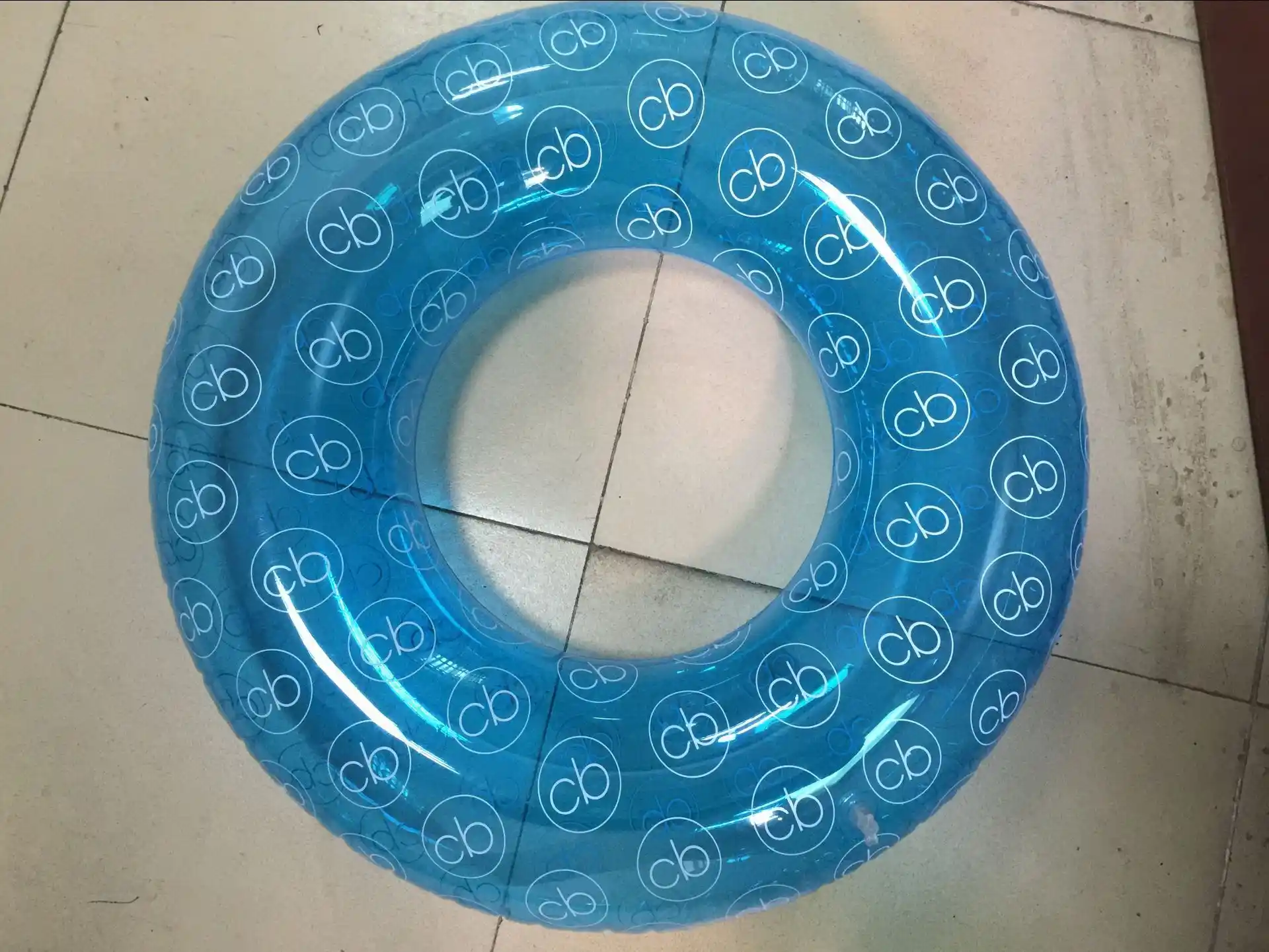In the vibrant world of water sports and leisure, swimming rings—those iconic inflatable circles that keep kids and adults afloat—are more than just toys. They are products of precision engineering, rigorous safety standards, and seamless supply chain coordination. Behind every branded pool float, beach lounger, or custom-designed water accessory lies a swimming ring contract manufacturer: a hidden partner that transforms ideas into market-ready products. For brands and retailers, understanding what these specialized factories bring to the table is key to unlocking success in a competitive global market.
—
What Is a Swimming Ring Contract Manufacturer?
A swimming ring contract manufacturer (CM) is a specialized factory that produces inflatable pool floats exclusively for external brands, rather than selling under its own label. These factories operate as end-to-end solution providers, handling everything from design development and material sourcing to production, quality testing, and packaging. Their core value lies in expertise: they take on the technical and logistical burdens of manufacturing, allowing brands to focus on marketing, sales, and customer engagement.
—
The Backbone: A Fully Integrated Supply Chain
One of the greatest strengths of top swimming ring contract manufacturers—particularly those in China—is their access to a deeply integrated industrial ecosystem. Unlike regions with fragmented supply chains, these factories operate within a network of specialized suppliers, component makers, and service providers, all within close proximity. This integration drives efficiency and consistency:
– Raw Material Sourcing: Factories source high-quality PVC (polyvinyl chloride) and TPU (thermoplastic polyurethane) directly from local chemical manufacturers. These materials are tested for durability, UV resistance, and non-toxicity—critical for products exposed to chlorinated water, saltwater, or prolonged sun exposure.
– Component Experts: Inflatable valves, reinforced seams, and custom molds are often produced by nearby specialist factories with decades of experience. For example, a valve manufacturer might supply precision-engineered nozzles that prevent air leaks, while a mold maker creates custom shapes (e.g., animal-faced rings or oversized loungers) with exacting tolerances.
– Ancillary Services: Printing, packaging, and logistics partners are also part of the ecosystem. This means a brand can order custom-branded packaging (e.g., eco-friendly cardboard boxes with foil stamping) or request same-week shipping to European ports—all coordinated by the CM.
This seamless integration reduces lead times, minimizes errors, and ensures that products meet tight deadlines, a critical advantage for seasonal items like summer pool floats.
—
Technical Expertise: From Prototypes to Mass Production
Producing swimming rings at scale requires more than just inflating plastic—it demands precision. Top contract manufacturers invest in advanced technology and skilled labor to master the nuances of inflatable product production:
– Tooling and Molds: Modern factories use CNC machines and 3D printing to create custom molds for unique designs. These molds are engineered to withstand thousands of inflation cycles, ensuring consistency across batches. For a brand launching a new “space-themed” ring, a CM can produce a mold that captures intricate details (e.g., stars, planets) with near-perfect accuracy.
– Automated Production Lines: Robotic cutting, welding, and heat-sealing systems minimize human error. For example, laser-welded seams are 20–30% stronger than glued alternatives, reducing the risk of air leaks. Automated printing machines also ensure vibrant, fade-resistant designs, even for complex patterns.
– Rapid Prototyping: Brands often need samples for market testing. Skilled CMs can turn a CAD design into a physical prototype in 3–5 days, using digital printing and small-batch molding to validate fit, feel, and functionality before full-scale production. This agility is invaluable for startups or brands testing new trends.
This technical prowess allows brands to iterate quickly, refine designs, and scale production without compromising on quality—a critical edge in fast-paced markets.
—
Quality That Meets Global Standards
For brands targeting international markets, compliance with safety regulations is non-negotiable. Swimming ring contract manufacturers understand this and embed quality into every step of production:
– Material Testing: Raw materials are batch-tested for harmful chemicals (e.g., lead, phthalates) using lab equipment like gas chromatographs. This ensures products pass strict standards like CE (EU), ASTM F963 (USA), and EN71 (Europe).
– Structural Testing: Factories conduct rigorous tests to mimic real-world use. For example:
– *Pressure Resistance*: Rings are inflated to 1.5x their recommended capacity and held for 72+ hours to check for leaks.
– *Tensile Strength*: Seams are pulled to failure to ensure they withstand rough play (e.g., kids tugging or jumping on the ring).
– *UV Resistance*: Samples are exposed to simulated sunlight for 500+ hours to verify color retention and material integrity.
– Certification Support: Experienced CMs guide brands through the certification process, handling documentation, audits, and third-party evaluations. This saves brands time and ensures their products are market-ready.
A brand selling in the U.S. market, for instance, can rely on a CM to produce rings that not only meet ASTM standards but also include child-safe printing inks and reinforced handles—all verified by accredited labs.
—
Flexibility: Serving Brands of All Sizes
One of the most underrated strengths of swimming ring contract manufacturers is their ability to cater to diverse client needs. Whether a brand is a startup with a 1,000-unit order or a global retailer needing 100,000 units, these factories adapt:
– Low MOQs for Niche Markets: Many CMs offer minimum order quantities as low as 500 units, making it feasible for small businesses or niche brands (e.g., eco-friendly floats, pet pool accessories) to enter the market without overcommitting.
– Scalability for Mass Retailers: For large orders, factories leverage their supply chain and production lines to maintain consistent quality while reducing per-unit costs. They also optimize logistics, using sea or air freight partnerships to meet tight deadlines (e.g., delivering stock to a U.S. retailer before Memorial Day).
– Endless Customization: From private labeling (adding a brand’s logo) to custom packaging (recyclable boxes, hang tags) and unique designs (e.g., glow-in-the-dark rings or rings with built-in cup holders), CMs work closely with brands to align products with their identity.
This flexibility ensures that brands of all sizes can deliver unique, high-quality products without sacrificing cost or lead times.
—
Partnership Beyond Production: A Shared Commitment to Success
The best swimming ring contract manufacturers view themselves as partners, not just vendors. They invest in understanding a brand’s goals, target audience, and market challenges to offer tailored solutions:
– Market Insights: Experienced CMs track global trends (e.g., demand for sustainable materials, popularity of themed floats) and share these insights with clients, helping them stay ahead of competitors. For example, a CM might alert a brand to rising demand for biodegradable TPU rings, prompting a shift in material strategy.
– Cost Optimization: By leveraging their supply chain knowledge, CMs suggest material substitutions or design tweaks that reduce costs without sacrificing quality. For instance, switching to a thinner but still durable PVC layer might lower production costs by 15% while maintaining performance.
– After-Sales Support: From addressing production issues (e.g., a sudden defect in a batch) to assisting with returns or quality claims, CMs work proactively to protect a brand’s reputation.
This partnership approach builds trust, ensuring long-term collaboration even as a brand grows or expands into new markets.
—
Why Choose a Swimming Ring Contract Manufacturer?
In a crowded global market, swimming ring contract manufacturers are more than factories—they are enablers of success. They offer:
– Cost Efficiency: Competitive pricing due to a mature supply chain and economies of scale.
– Quality Assurance: Compliance with international standards and rigorous testing protocols.
– Speed to Market: Rapid prototyping, efficient production, and optimized logistics.
– Customization: Tailored solutions to match brand identity and market demands.
For brands seeking a reliable partner to bring their pool float ideas to life, swimming ring contract manufacturers are not just an option—they are the key to turning vision into reality.
—
Conclusion
Swimming ring contract manufacturers are the unsung heroes of the global leisure industry. By harnessing a fully integrated supply chain, technical expertise, and a customer-first mindset, these factories empower brands to deliver safe, durable, and engaging pool accessories. For buyers, the choice is clear: partnering with a specialized contract manufacturer means accessing the skills, scale, and flexibility needed to thrive in today’s competitive market.
Article link:https://www.vlefooena.com/manufacturer/4494/




No reply content